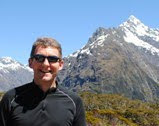
A busy few months working away has meant more time off the bike than I would like. Popped over to Mallorca in January with the GB Para-Cycling squad, then it was down to Newport Velodrome with the squad for 8 days of intensive track work in February. A couple of weeks at home, then a long drive down to Montichiari, near Brescia in Italy for the Para-Cycling World Track Champs. Took a bike but only managed two rides and could feel the little bit of fitness I had, ebbing away. Still although the championships were hard work, they were very exciting. The GB squad is lottery funded and sponsored by Sky, with most of the Athletes full time and based in Manchester. This level of support is the envy of most nations including the USA who were in the pits next to us at the Velodrome and were constantly scrounging tools from our mechanics. We got on well though, so they were welcome. With 18 medals we topped the table and are the Nation that everyone else looks at, we can appear a little arrogant though! Anyway it’s all about next year London 2012 and everything this year is done with that in mind, points win prizes, the number of points won in competition this year will determine the number of athletes able to compete at the London Paralympic Games. We certainly picked up a few in Italy. It was hard work trackside but being so close to the action was great fun - even enjoyed the long drive back, while the athletes flew home from Verona.
Then it was down to Celtic Manor Hotel for a team day, apparently its £160 to play a round of golf on the Ryder cup course and even though it was midweek there were plenty of takers. Anyway back to that lost fitness! Have managed to get back on it a bit, not got the time for loads of miles so when I do ride I “nail it”. Its hard work but I know it gets results and after 4-5 weeks I can feel a few “green shoots of recovery”. A family holiday and then Switzerland and Spain with the Para boys and girls for 12 days will soon put an end to that.
Enjoyed a morning taking pics at the Ringwood Triathlon recently, I did this race a couple of time in its first incarnation in the early nineties. Organiser Michelle Noble of Results triathlon put on a great race and was rewarded with warm spring sunshine. The course is pretty much the same as 20 years ago and the long drag up Bolderwood drive with the steep bit at the end, caught more than a few out. Winner James Gilfillan looked very comfortable, I know because I was there taking photos of him. I still regularly train on this course and always have to work hard.
London Marathon time again and I have had the usual last minute panic appointments for massage, some of you should have come months ago. Most of the people I have been seeing started training a week or so after Christmas so have racked up a fair few miles. I must wish local star Steve Way good luck, his training has been a bit disrupted this year but he certainly puts in the hard work. Whether he has the form to beat last years 2.19.39, and 17th place I do not know, but I know he will be giving it his best shot - Now that’s something to aspire to!
See you up the road…
ED
Eamonn Deane is a TrainingBible UK specialist in the field of sports massage. To find out more about his work, check out his new website at
www.sportsmassagebournemouth.co.uk






